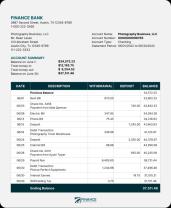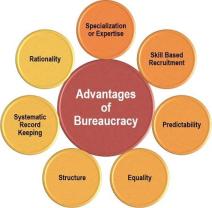What are the skills needed for a managing director?
A Managing Director (MD) holds a critical leadership position in an organization, typically overseeing the entire operation and providing strategic direction. To excel in this role, an MD should possess a diverse set of skills and traits. Here are essential skills and qualities needed for a Managing Director:
Leadership: Strong leadership skills are crucial. MDs need to inspire, motivate, and guide their teams. Effective leadership involves setting a clear vision, making tough decisions, and leading by example.
Strategic Thinking: MDs must have the ability to think strategically and see the big picture. They should be adept at setting long-term goals, formulating plans, and adapting to changes in the business environment.
Financial Acumen: A solid understanding of finance is essential. MDs need to make financial decisions, manage budgets, and ensure the financial health of the organization.
Problem-Solving: MDs often face complex challenges and problems. The ability to analyze issues, identify solutions, and make informed decisions is crucial.
Communication: Effective communication skills are paramount. MDs need to articulate their vision, provide clear directions, and communicate with employees, stakeholders, and the board of directors.
Interpersonal Skills: Building and maintaining relationships with employees, clients, partners, and other stakeholders is essential. MDs should possess strong interpersonal skills, including empathy, diplomacy, and negotiation abilities.
Adaptability: The business landscape is constantly changing. MDs need to adapt to new technologies, market trends, and economic conditions. Flexibility and openness to change are vital.
Team Building: Building high-performing teams is a key responsibility. MDs should recruit, train, and develop talent, fostering a positive and collaborative workplace culture.
Risk Management: MDs must be skilled in risk assessment and management. They should make informed decisions while considering potential risks and rewards.
Decision-Making: Effective decision-making is a core competency. MDs should make timely and well-informed decisions that align with the organization's goals and values.
Negotiation Skills: Negotiation is often required in dealing with partners, suppliers, and other stakeholders. MDs should be skilled negotiators to achieve favorable outcomes.
Time Management: Managing time effectively is crucial. MDs often have a demanding schedule, and the ability to prioritize tasks is essential.
Ethical Leadership: Upholding high ethical standards and integrity is fundamental. MDs set an example for the entire organization in terms of ethical behavior and corporate responsibility.
Strategic Networking: Building and maintaining a network of industry contacts, peers, and mentors can provide valuable insights and opportunities for the organization.
Resilience: The ability to bounce back from setbacks and maintain composure under pressure is important for an MD.
Global Perspective: In a globalized world, having a global perspective and understanding international markets and cultures can be advantageous.
These skills and qualities are essential for a Managing Director to lead an organization effectively, drive growth, and navigate the challenges of today's dynamic business environment. It's worth noting that the specific skills needed may vary depending on the industry, organization size, and the MD's unique role and responsibilities.
A managing director (MD) is a senior executive responsible for the overall management of a company or business unit. MDs are responsible for setting and achieving strategic goals, leading and managing teams, and making important decisions that affect the company's bottom line.
To be successful as a managing director, it is essential to possess a strong combination of hard and soft skills. Hard skills are technical skills that are specific to a particular job or industry. Soft skills are personal attributes and interpersonal skills that are essential for success in any role.
Essential skills for a successful managing director include:
- Strategic thinking: MDs must be able to think strategically about the future of their company and develop a plan to achieve their goals. They must be able to identify opportunities and threats, and make decisions that will position the company for success in the long term.
- Leadership: MDs must be able to lead and motivate their teams. They must be able to create a positive work environment and inspire their employees to achieve their goals.
- Decision-making: MDs must be able to make sound decisions under pressure. They must be able to weigh the pros and cons of different options and make the best decision for the company, even when the stakes are high.
- Communication: MDs must be able to communicate effectively with a variety of stakeholders, including employees, customers, investors, and the media. They must be able to clearly articulate their vision for the company and motivate others to support their goals.
- Financial acumen: MDs must have a strong understanding of financial principles and be able to analyze financial data. They must be able to make sound financial decisions and manage the company's resources effectively.
In addition to these essential skills, MDs often have experience in a variety of other areas, such as marketing, sales, operations, and human resources. This experience gives them a broad understanding of the business and allows them to make more informed decisions.
Mastering the Art of Leadership: Skills Required for a Managing Director
Leadership is one of the most important skills for a managing director. MDs must be able to lead and motivate their teams to achieve their goals. They must also be able to create a positive work environment and build relationships with their employees.
Here are some key leadership skills that are essential for managing directors:
- Vision: MDs must have a clear vision for the future of their company. They must be able to communicate their vision to their employees and inspire them to work towards achieving it.
- Communication: MDs must be able to communicate effectively with their employees. They must be able to clearly articulate their goals and expectations, and they must be able to listen to and understand their employees' feedback.
- Motivation: MDs must be able to motivate their employees to achieve their goals. They must be able to create a positive work environment and provide their employees with the resources and support they need to be successful.
- Delegation: MDs must be able to delegate tasks effectively. They must be able to identify the strengths of their employees and assign tasks to the people who are best qualified to complete them.
- Decision-making: MDs must be able to make sound decisions under pressure. They must be able to weigh the pros and cons of different options and make the best decision for the company, even when the stakes are high.
What It Takes to Excel as a Managing Director: Key Competencies
In addition to the essential skills and leadership skills listed above, there are a number of other key competencies that can help managing directors excel in their roles. These competencies include:
- Problem-solving: MDs must be able to identify and solve problems effectively. They must be able to think outside the box and come up with creative solutions to complex problems.
- Conflict resolution: MDs must be able to resolve conflict effectively. They must be able to listen to all sides of an issue and work with the parties involved to find a mutually agreeable solution.
- Change management: MDs must be able to manage change effectively. They must be able to communicate the need for change to their employees and help them to adapt to new ways of working.
- Teamwork: MDs must be able to work effectively with others. They must be able to build relationships with their employees and other stakeholders, and they must be able to collaborate with others to achieve common goals.
Managing directors play a vital role in the success of any company. By developing the essential skills and leadership qualities listed above, MDs can position themselves for success and help their companies to achieve their goals.













